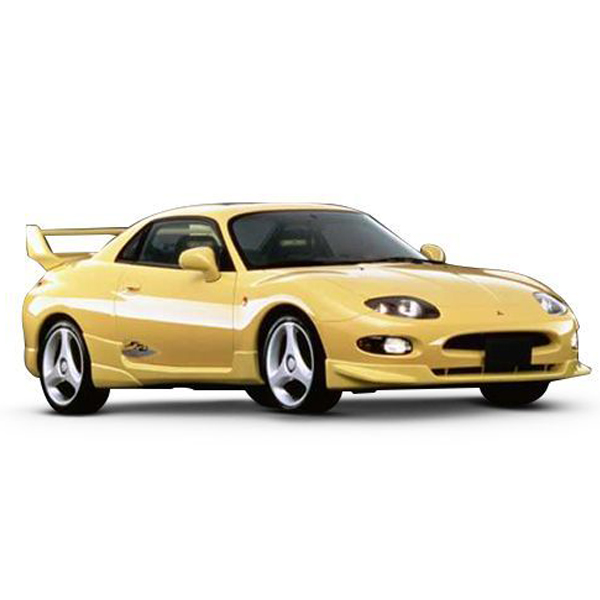Mitsubishi FTO Car Battery
| Battery Model | Price Without Scrap | Price With Scrap |
|---|---|---|
| Amaron GO-00095D26R | Rs. 6350 | Rs. 5150 |
About the Model
A car that will catch your eye every time it passes by you, the Mitsubishi FTO, is the company’s finest front-wheel-drive coup. The sleek-looking exterior is graced with stylish rounded headlights and finished in attractive shades worthy of the hype. The 1998 cc petrol engine is supported by an excellent gearbox operating on manual transmission and delivering incredible mileage of 13.17 kmpl depending on the fuel type and variant of the FTO.
The plush interiors of the vehicle make it an exciting and comfortable drive, while the advanced electrical features and powerful battery help deliver exceptional performance. The brakes are of the ventilated disk type. With the help of the 5-speed gearbox and the engine, the vehicle can accelerate from 0-100 km/hr. in merely 7.5 seconds.
What Happens when Your Car Battery Fails?
Most car batteries, no matter how robust, have a limited lifespan of 3-5 years. The same is true for your Mitsubishi FTO’s battery, which means you will have to get it replaced in about 3-5 years even if you have religiously followed all car maintenance and safety rules. However, your car battery will usually give you some signs of its imminent death weeks before complete battery failure.
One of the most easily observable signs of a dying battery is corrosion in the battery terminals. You can notice bluish, greenish, or whitish powdery deposits if your battery terminal is corroded. These deposits might also be solid. You might also have to jumpstart your car more frequently as its battery ages. Moreover, you might notice dimming headlights, backfiring, a slow cranking engine, or problems operating your air-conditioner and heater when the car is not running. Sometimes, the hood of your car will emit bad odour, and as you open it, you might also notice the battery case swollen or marked.
The moment you observe any of the aforementioned signs, you should seek professional car battery replacement services.
About Car Fit Experts’ Products and Services
If your Mitsubishi FTO’s battery has expired and you are looking for trustworthy battery replacement services, look no further than Car Fit Experts. Being India’s most trusted battery replacement professionals, we ensure the best for your car at all times. Our well-trained technicians can handle replacements for cars of various brands like Maruti Suzuki, Mercedes, BMW, Audi, Mitsubishi, and Hyundai. From the moment you bring your car to us to the moment you return home with a high-quality battery installed in it, our technicians attend to your FTO with precision and care. Since we understand that driving to our service centres might not always be feasible, we also offer doorstep battery replacement services.
Call us today at +91 9555305044 to have your car battery replaced!
Frequently Asked Questions
Car battery replacement for Mitsubishi FTO usually takes 30 to 60 minutes. This duration varies depending on the car model and the speed at which the battery can be accessed & removed.
For Mitsubishi FTO car batteries, there are many providers available in the Indian market; however, Exide and Amaron have established an excellent reputation. If you're looking to replace your old Mitsubishi FTO car battery, you can contact our experts.
A standard Mitsubishi FTO car battery can last up to three to four years, although this is dependent on any extra features installed in Mitsubishi FTO . If you’re seeking a car battery replacement service at home, you can avail our doorstep facility.
DIY solutions for Mitsubishi FTO car battery replacement do not work every time; eventually, you should get it from the professionals. Contact us for Mitsubishi FTO car battery replacement service at home to ensure hassle-free car care services.
The general consensus is that you should replace your car battery every four years, although you may need to replace it sooner. The lifespan of your battery might be affected by factors such as outside temperature, driving habits, etc.

